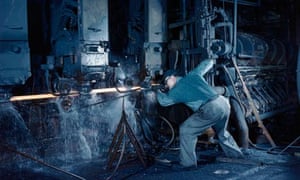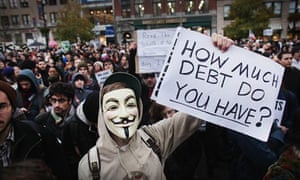JB comment on below article
Once the word-centered, dying-off, geezers using Facebook -- before they enter eternity (see below article) -- will Facebook stocks be worth a dime?
Ok, maybe Zuck can pull off yet another "Silicon Valley" miracle, .. but will some other form of communication (progress? regress?) move in, to replaced by another form of essentiallly wordless communication, a silly speculation that goes on ad infinitum.
As we all know, Plato (in one of his moods) was against writing, but (so far as I can tell as a non-scholar) not against speech.
***
By KATIE ROGERS APRIL 14, 2016 (dated, but still relevant)
Image from article: A senior citizen on Facebook; abbreviated caption from article
When Facebook was born in 2004, the oldest baby boomers were in their late 50s,
and older members of the silent generation were reaching their early 80s. If you
thought they were going to sit back and let gifs, emojis and status updates pass them
by, you were wrong, according to new research.
In a survey of over 350 American adults between the ages of 60 and 86,
researchers at Pennsylvania State University found that older people enjoy the same
things their younger counterparts do: using Facebook to bond with old friends and
develop relationships with like-minded people. They also like to keep tabs on their
loved ones.
These motivations sound awfully similar to those that attracted college students,
Facebook’s first colonizers, to the platform — save for one key detail. For many
surveyed, seeing photos and video of grandchildren were a powerful lure, according
to S. Shyam Sundar, a co-director of the Media Effects Research Laboratory at Penn
State, who worked on the survey.
“That was primarily the biggest driver,” Mr. Sundar said, “and the ease with
which they can maintain what I call social surveillance, and keep an eye on what’s
going on with their children and grandchildren.”
I decided to add my own survey to the research by interviewing my 61-year-old
father, Richard, who has had me under Facebook surveillance recently.
From an academic-research standpoint, he’s on the younger side of being old —
and, like many his age, he feels younger. He successfully avoided social media for
years. But after returning home to Indiana from my wedding a couple of months ago,
he wanted to be better at keeping in touch with family and with the friends he
remembers from my childhood. He told me over Facebook chat (naturally) that his
curiosity about what others were up to was his main motivator in finally learning to
navigate Facebook.
Now, like the rest of us, he’s hooked. He’s had a ball wishing happy birthday to
my friends, commenting on our status updates and sharing his own life’s highlights.
He still signs comments with his initials, but he’s learning. He has even joined a
Facebook group for local music enthusiasts, sharing memories about his favorite
concert (The Beatles in 1964) and photos of his drum set.
“Initially, I think I viewed it as something ‘newfangled’ that only the younger
computer-generation used,” he said. “Then, like probably everybody, I started to
become hooked as I saw just how expansive it is, and how much it seems to literally
touch so many lives.”
The findings might not come as any surprise to countless members of the
digital-savvy generations who have watched (and cringed) as their parents fell in
love with Facebook, but researchers say the online lives of older adults, who are a
part of the fastest-growing demographic on social media, are much more mysterious
than the much-scrutinized behaviors of younger generations.
As Facebook continues to be a bigger part of American life, the ever-growing
population of older Americans is figuring out how to adapt. As people grow older,
peer communication through chatting, status updates and commenting will become
more important, Ms. Sundar said, and Facebook will need to adapt tools that are
suited for an aging audience.
Research shows that older Americans are living longer than previous
generations, and many of them prefer to stay in their homes, often called aging in
place. Independent seniors will need to learn to use digital tools that will keep them
engaged — and allow them to reach out for help if they need it, Mr. Sundar said
“The whole idea is to kind of give people a chance to be social when there are
physical constraints,” Mr. Sundar said, “Create a virtual retirement community, if
you will.”
Update: In reaction to this story, several readers shared stories of their own
parents and grandparents on Facebook. Here are a few highlights:
• “My grandfather writes LOL on everything. But the funny thing is that he
thinks that it stands for lots of love. My wife’s grandfather is the best, he literally
writes ‘LIKE’ instead of liking the post.” – Brendan McCaffrey
• “When I was tagged in a lot of pictures from an all-day drinking event and my
Grandmother posted on my wall ‘Do you ever have time to study?’ THANKS
GRANDMA!” – Brogan Bunnell
• “I had to unfriend my mom on Facebook because she ‘over-comments’ on
every single post. I’ve explained to her in person that this is why we aren’t friends on
Facebook. I made a post the other day and accidentally had the privacy setting set to
public. My mom texted me her comments on my post by phone, and then sent a
follow up text to clarify that she sent the text because she can’t comment on my post
on Facebook, and follows it up with another Facebook friend request. She totally
missed the point.” – Aimee Myers Lynch
• “Someone I know meant to PM his son his tax return, but instead publicly
posted it and tagged them in it.” – Moody Mohamed





















